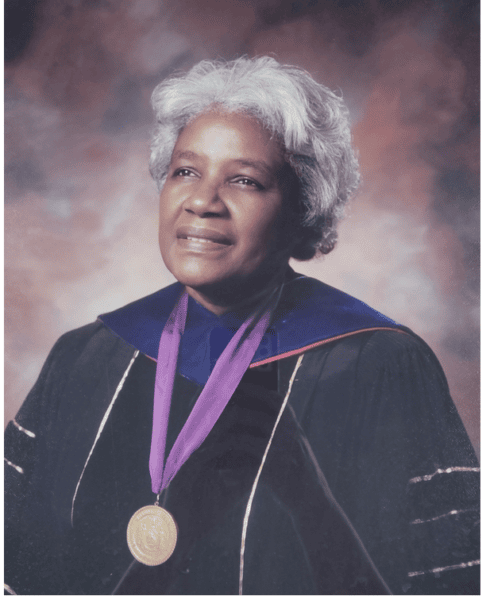Ena Lunette Farley, a passionate advocate for African American studies at a time when the field was still struggling for recognition, died on August 4, 2024, after a long career as a faculty member at the State University of New York (SUNY) College at Brockport. Dedicated to scholarship and teaching, she was also devoted to the relationships she forged with colleagues, friends, and family members.

Ena Farley
Ena was born in Race Course, Jamaica, on September 15, 1938, to Edna and Richard Morris, both educators. After graduating from the Wolmers High School for Girls, she earned a BA in history (with honors) from the University of London, University College of the West Indies. Subsequently she received an MA from the Putney Graduate School of Teacher Education in Vermont. In 1961, she married Rawle Farley, an economist. Ena completed a PhD in American history at the University of Wisconsin–Madison in 1973.
In 1967, Ena became assistant professor of history at SUNY Buffalo, where she taught until 1973, when she was appointed to Brockport’s recently founded Department of Afro-American Studies. In 1980, while serving as interim chair, she found herself at the center of a controversy over the selection of the department’s next leader. When a department vote resulted in a tie between Ena and a male colleague, the college president resolved the matter in her favor. Given the difficulties she faced as a woman seeking to lead a fractious group of men from multiple cultural backgrounds, her adversary’s accusation that the college administration had displayed “paternalistic” behavior by choosing her as chair is fraught with irony. But Ena held her ground, just as she advised her students to do when faced with obstacles in their own lives.
During the remainder of her career at Brockport, Ena threw some of her energies into planning events that advanced Black history. A commemoration she helped organize in 1990 to mark the 20th anniversary of her department, by then called African and Afro-American Studies, epitomized her values: She brought in Harold Cruse, author of The Crisis of the Negro Intellectual (1967), as the keynote speaker, remarking to the student newspaper, “We’re dignifying the discipline of African and Afro-American Studies in the best way by bringing in a top-flight intellectual.”
At the same time, Ena shared her expertise as a scholar, with a primary focus on the histories of African Americans in New York state. Her book, The Underside of Reconstruction New York: The Struggle over the Issue of Black Equality (Garland), was published in 1993. In paper presentations, she also ventured into other areas, such as Puerto Rico and World War II, as well as the biographies of colonial Black Americans. After her retirement as professor emerita in 1995, she was a consultant to the New York State Historic Preservation Field Services Bureau to identify sites of importance to African American history. In 1997, she was appointed to the New York State Board of Regents, continuing the public service that had included membership on the Board of Education for Brockport Central Schools from 1986 to 1994. In 1998, she and Rawle were honored at the 50th anniversary celebration of the University of the West Indies. Rawle died in 2010.
Ena was notably generous as a mentor, earning the praise of her students for her high standards and confidence in their ability to succeed. The current chair of her former department recalled her assistance to a young scholar of African American literature. Ena also persuaded a professor of African dance who was reticent about displaying his talent as a visual artist to mount an exhibit of his work, enriching the lives of its many viewers.
Dominating any other personal quality, however, was her pride in her four children, Anthony, Felipe, Christopher, and Jonathan Farley, each of whom graduated from either Harvard College or Harvard Law School. Once when Ena was speaking at a public symposium, she said to the person introducing her, “Be sure to mention my sons.” Although she regarded them as her biggest achievement, she deserves to be remembered for much more, including her contribution to SUNY Brockport’s ongoing effort to bring global perspectives into all aspects of its curriculum.
Joan Shelley Rubin
University of Rochester
This work is licensed under a Creative Commons Attribution-NonCommercial-NoDerivatives 4.0 International License. Attribution must provide author name, article title, Perspectives on History, date of publication, and a link to this page. This license applies only to the article, not to text or images used here by permission.